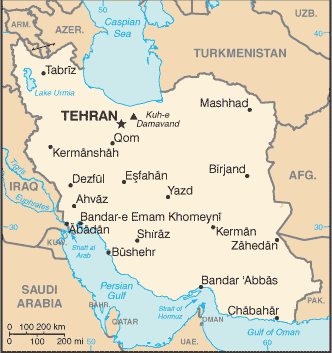The latest round of Iran-P5+1 nuclear talks, scheduled to begin Tuesday in Geneva, will include direct bilateral talks with US officials, according to Iranian Deputy Foreign Minister Abbas Araqchi.
 There were no direct talks with US officials during previous P5+1 meetings, and in the past Iran has met with the other five members of the group. Secretary of State John Kerry and Foreign Minister Javad Zarif met two weeks ago during the UN General Assembly, where the P5+1 also held some preliminary talks with Iran, and this seems to be aimed at building on that.
There were no direct talks with US officials during previous P5+1 meetings, and in the past Iran has met with the other five members of the group. Secretary of State John Kerry and Foreign Minister Javad Zarif met two weeks ago during the UN General Assembly, where the P5+1 also held some preliminary talks with Iran, and this seems to be aimed at building on that.
Though tolerating being in the same room with one another is huge progress, Secretary Kerry sought to reassure key Israeli lobby AIPAC that the prospects for a deal were relatively low, saying that any engagement with Iran depends on “Israel’s security needs.”
If Israel’s government had gotten its way, of course, the talks wouldn’t be happening at all, and Prime Minister Benjamin Netanyahu has been giving near-daily speeches about the perils of diplomacy while issuing ever more onerous demands to Iran to unconditionally surrender the whole of its nuclear program.
Araqchi says Iran is willing to negotiate on some matters of scope on the nuclear program, notably the amount of uranium enrichment they will do. At the same time, he ruled out the Israeli demand to surrender its existing nuclear stockpile, leading Israel to once again declare the talks a sham that must be stopped immediately.
Iran has been using its enriched uranium stockpile, enriched to civilian levels, for civilian purposes, and the stockpile is quite a bit smaller than it once was. This is likely a key part of Iran’s refusal to hand the rest over: their continued operation of the Bushehr reactor and the Tehran Research Reactor requires fuel for both, and thus it doesn’t make much sense to just suddenly surrender that fuel on the off chance the US will let them buy it back later for the perfectly legal uses it was intended.


